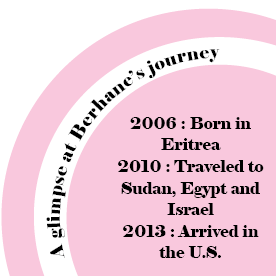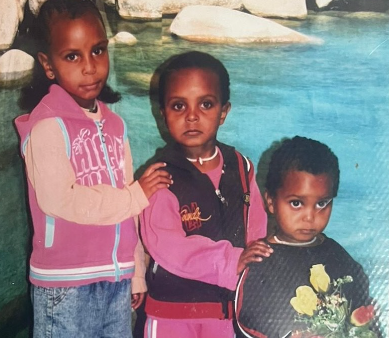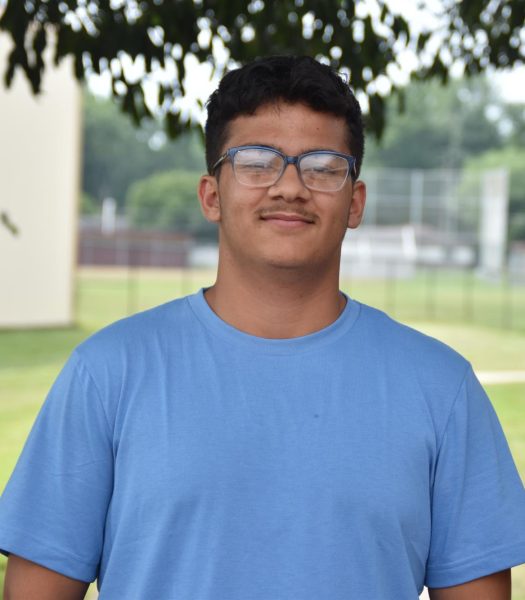Despite constantly adapting to new environments and cultures, senior Melat Berhane never lost her footing.
Melat Berhane is no stranger to change. She endured lots of struggles as she fled Eritrea, a country in East Africa, in search of safety.
Her journey consisted of pushing through uncertainty, embracing the unfamiliar and finding a way to help her family.
Her difficulties have shaped her into the person she is today.
“If my parents depend on me and I can help them, maybe I can help other people,” Berhane said.
Born in Eritrea, Berhane’s world changed when her family was forced to flee from their home.
She was just three years old, lacking knowledge of the ongoing political conflict between Eritrea and neighboring countries like Ethiopia.
But she recalls their first stop in Sudan. The first journey was the toughest as Berhane and her mother walked more than 600 miles through the desert under the scorching sun.
As they progressed, Berhane stopped in her tracks as sickness overwhelmed her body.
By the time they reached Sudan, Berhane was wracked by nonstop vomiting. No one in her family knew what she had; they just recall the doctor giving her six shots and resting until recovery.
“When we got to Sudan, I was almost dead,” Berhane said. “Then, they took me to a hospital there. I was okay from then.”This was just the first of many challenges Berhane would face, but it was one that set the tone for her journey.
No matter how difficult the path, Berhane was determined to find a way forward.
After their two-week stay in Sudan, the pair embarked on their road to Egypt. After walking 760 miles, they spent two days there and began the path towards their final destination which totaled to be around 700 miles.
Arriving there when she was 3.5 years old, Berhane didn’t know she would live in Israel for the next 13 years.
Since her native language, Tigrinya, was uncommon in Israel, many were unable to help her learn Hebrew, Israel’s primary language. However, one of her classmates was able to help her.
After a while, Berhane adapted to the environment and language which allowed her to begin translating for her parents.
However, Berhane was forced to relocate because their family lacked the documents to pursue greater opportunities.
“If we don’t have documents, we cannot buy a house, cannot buy a car, cannot drive, so we literally don’t have rights there,” Berhane said. “So that’s the reason we came here.”
 Berhane had to learn how to adjust once again, but this time to American culture.
Berhane had to learn how to adjust once again, but this time to American culture.
Similar to her experience in Israel, Berhane had to navigate through this new culture and learn English. Berhane managed to develop stronger skills through watching movies and TV shows while English classes built her writing skills.English teacher Brent Bockelman sees Berhane’s efforts to stay on track with the material.
“She works really hard to make sure that she knows what’s happening,” Bockelman said. Upon learning these skills, Berhane took the initiative to guide her parents through this unfamiliar environment.
She often translated during hospital visits, communicated conversations from English to Tigrinya and helped complete payments and bills.
Berhane even began leaving class to translate for her mother, creating a challenge as she tried to balance school as well.
“I feel tired, but I know they can’t do it on their own” Berhane said. “They did everything to for me. So I don’t have much problems helping them.”
After reflecting on this journey, Berhane feels she achieved a sense of happiness while helping her parents.
“I got to be more responsible when growing up because I (would) translate everything to my parents,” Berhane said.



